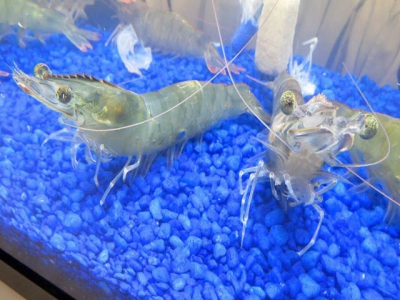Bangladeshi shrimp farmers shift to crab aquaculture to avoid losses

Farmers in Khulna region in the southwestern part of Bangladesh have turned to raising crab, following repeated losses in shrimp farming due to disease outbreak and natural disasters, the United News of Bangladesh (UNB) reported last week.
Cultivation of crab is more profitable than shrimp and the demand for crab is on the rise in international markets.
In Bagerhat district, shrimp in many farms died because of oxygen failure following heavy rains in September. With shrimp farmers still reeling from huge losses, Cyclone Bulbul hit the coastal districts of Bangladesh in early November, dealing yet another blow to the sector, UNB said.
Meanwhile, over 6,989 metric tons (MT) of crab were produced on 28,546 hectares in five administrative units in Khulna, UNB said, citing data from Khulna Fisheries Office.
Exports of crab from Bangladesh were worth USD 2.9 million (EUR 2.6 million) in the last five months, according to the Khulna office of Export Promotion Bureau.
Crab is mainly produced in Sundarbans areas in Khulna and exported to China, Taiwan, Belgium, the United Kingdom, the Netherlands, Germany, and Australia.
Crab farming is becoming popular in the region because of the lower possibility of disease outbreak and high prices in foreign markets, local farmers said, adding that prices of crab are between BDT 1,000 and BDT 1,200 (USD 11.80 to USD 14.10, EUR 10.60 to EUR 12.80) per kilogram, higher than BDT 700 and BDT 800 (USD 8.20 to USD 9.40, EUR 7.40 to EUR 8.50) per kilogram of shrimp.
Due to changes in climate, the breeding season of crab is now from March to April, instead of from January to February in the past, a local businessman said.
One of the difficulties facing local crab farmers is that they lack modern technology needed to raise farming output, the businessman added.
Có thể bạn quan tâm
 Study supports co-culture of sea cucumbers and snails
Study supports co-culture of sea cucumbers and snails The co-culture of sandfish sea cucumbers and Babylon snails (Babylonia areolata) looks promising, according to the authors of a new study.
 Industrial side streams show potential for fish, animal feeds
Industrial side streams show potential for fish, animal feeds VTT incubator teams come up with two solutions to meet need for new sustainable fish and animal feeds.
 The farm that aims to monitor every individual salmon
The farm that aims to monitor every individual salmon The development of iFarm is a unique opportunity for suppliers of equipment to take part in an exciting and high-tech development project in Norway.